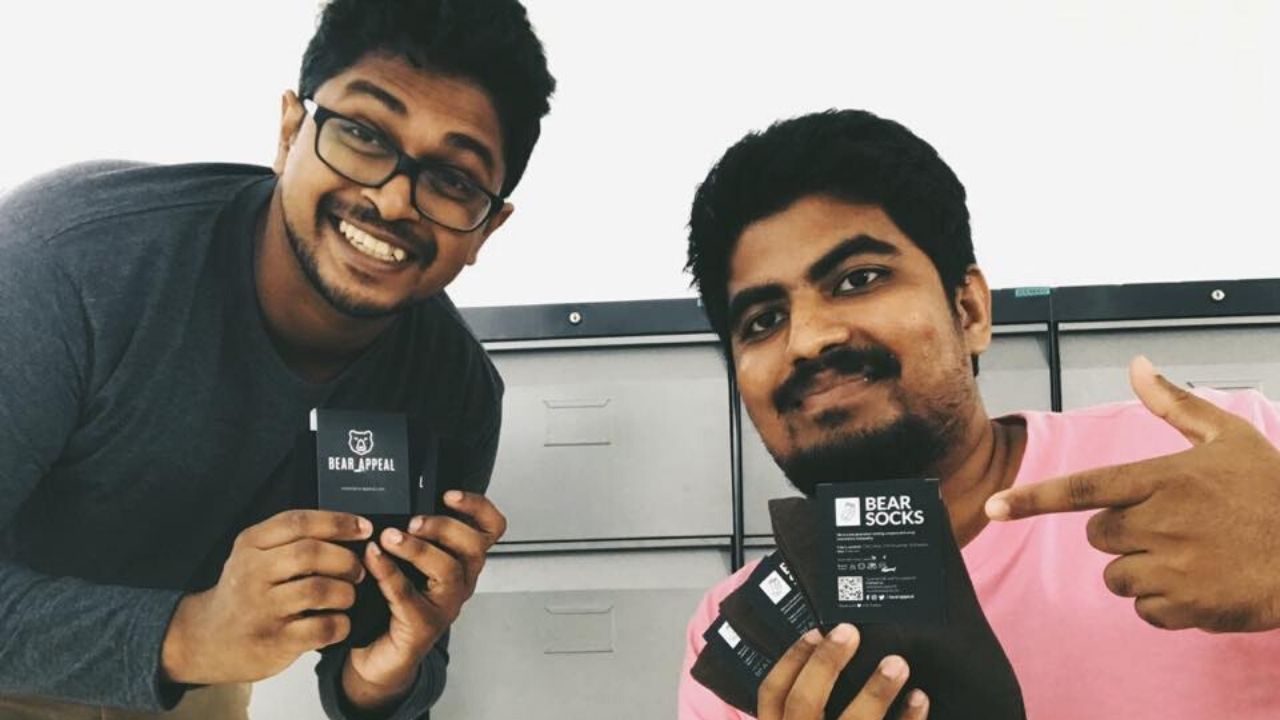Building a business isn’t complicated, it’s just not really. A business is really just a value chain spanning from the people buying your goods or services, to the people making it, operating it, and owning it. This entire balancing act starts to fall apart when one component starts to extract too much value or someone starts losing out.
You know when you consolidate because “economies of scale” would reduce costs and create more value, but we’re left with bloated middle management, ridiculous inefficiencies and higher costs? Complacency is truly terrifying.
I’ve been following the journey of a couple of my old colleagues for a few years. Thamara and Pavithra, the founders of a local clothing brand named Bear. Their journey was interesting to me because of a few reasons.

Selling basics is pretty tough
I very rarely want things printed on my clothes, unless its red shirt with the Surge logo printed across and the occasional Nike shirt (The brand has grown on me) I really just wear basics (I have for about 5 years now). When these two got into selling basics I was intrigued.
It’s one of those product categories that have almost no barrier to entry. Any manufacturer can do it anywhere in the world, and it’s not really that hard. You don’t need to have a good story as long as your clothes fit and aren’t terrible you can sell it. Partly why t-shirts are a drop-shippers wet dream.
Because of all these reasons, selling basics is tough, its ruthlessly competitive, customers are price sensitive and it’s a race to the bottom. This is why we see so many t-shirt companies pop-up every weekend. You probably have a friend who has tried to “hustle” with a t-shirt brand or two under her/his belt, it’s not that hard.
Selling stuff online is tough

The internet is really great, the internet in Sri Lanka is still in the process of becoming great. With an active penetration barely hitting the 30% bracket and payments being at its infancy, the local e-commerce ecosystem is really just getting started.
Every-time an e-commerce player enters the market (especially the ones that don’t seem to be funded) it’s become a personal practice to keep an eye on them. You never know what you’ll learn.
Just like payments, our-logistics, fulfillment, stocking, inventory, mechanisms were really just getting started. The data you collect rarely goes through the chain for you to make informed critical decisions. It’s almost like you have to invent your way through the problems you face (at least with the directional feedback given to you letting you know what you have to invent next).
Curry parents are stressful.
One of the two had just finished his university degree, the other was 3 years into his first job. Telling your parents that you’re going to try to sell t-shirts on the internet isn’t really an easy conversation.
The discipline you need to take a significantly lower pay for an extended period of time without knowing whether it’ll work out or not isn’t the best feeling. I understand that you need to have a certain level of privilege to be able to take these kinds of risks, but kudos to the people that have the guts to deal with the trauma of balancing all of these things together.
Why we bet on bear
Selling clothes to an emerging market on the internet is quite challenging, we like to touch and feel what we buy. But the team at Bear understood something interesting.
If you’re buying basics, you really just need to understand it once. Businesses like ASOS build robust logistics infrastructure and absorb crazy amounts of costs so that you can try on before you buy, but the chances of your sizes changing is really low. If I buy a black large crewneck, that’s not really going to change the next time I buy something else (unless I break my diet again).
These guys managed to play with this concept rather well. I’ve personally been a customer for a few years. Initially, because they were my friends and it’s always nice to support things kicking off, but later on because the service I’ve received was quite remarkable. In a sea of negative feedback and people complaining about ecommerce here in Sri Lanka, Bear was a breath of fresh air.
Sure, they didn’t solve ecommerce, but they solved a small problem really well.
In 2019, Blackdoor, together with Tavistock made an investment in Bear to help scale the efforts and push forward the idea that the founders had since its inception.
This marks the 10th investment for Blackdoor Capital.

